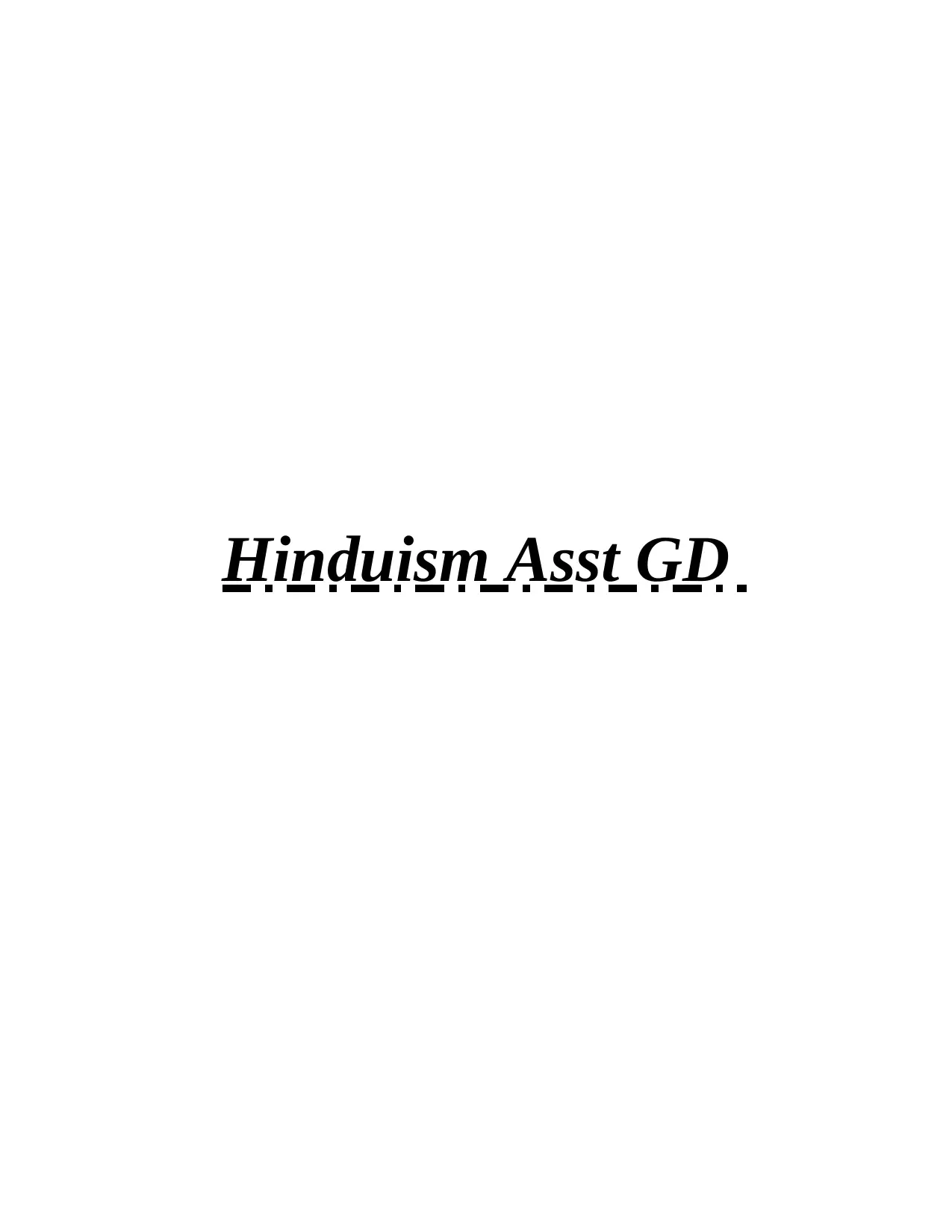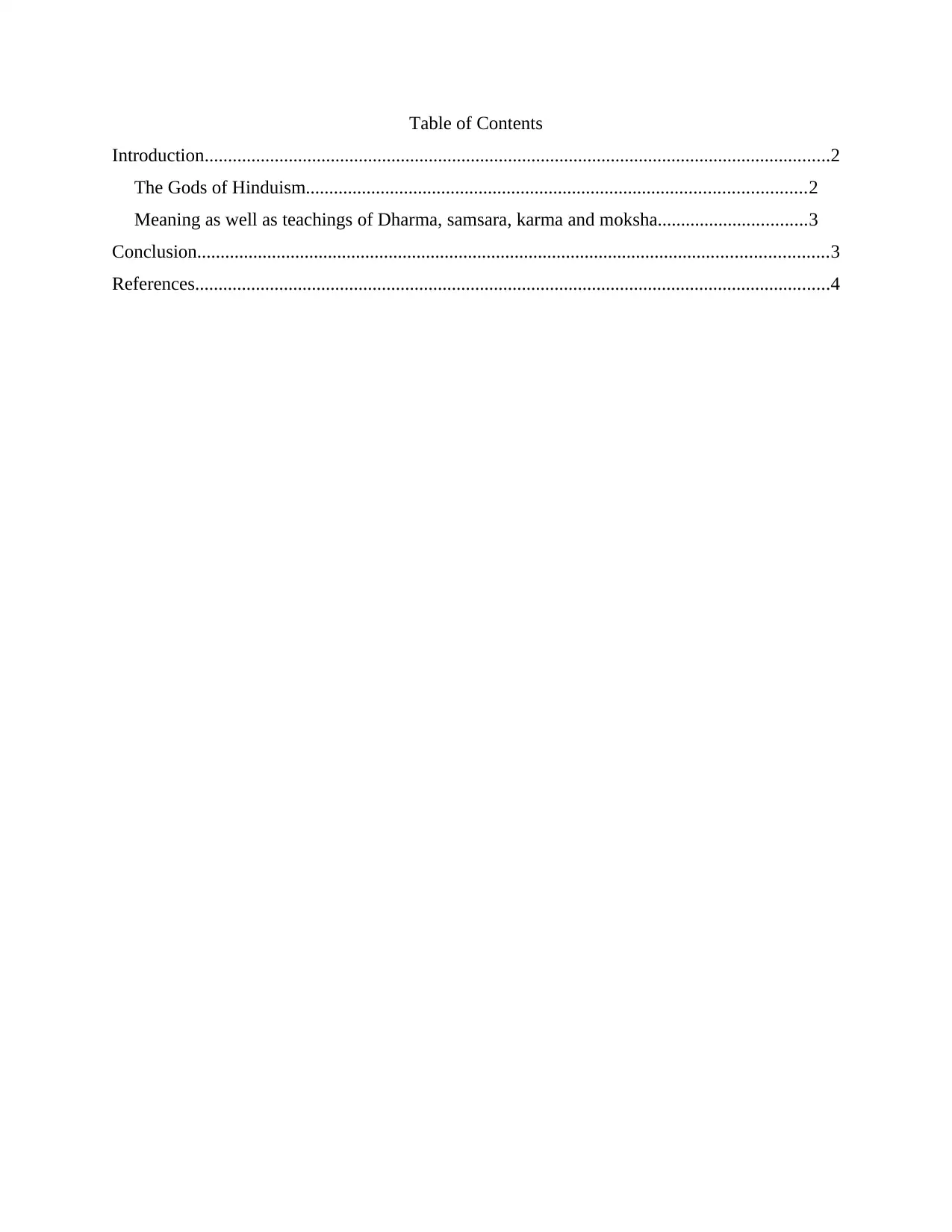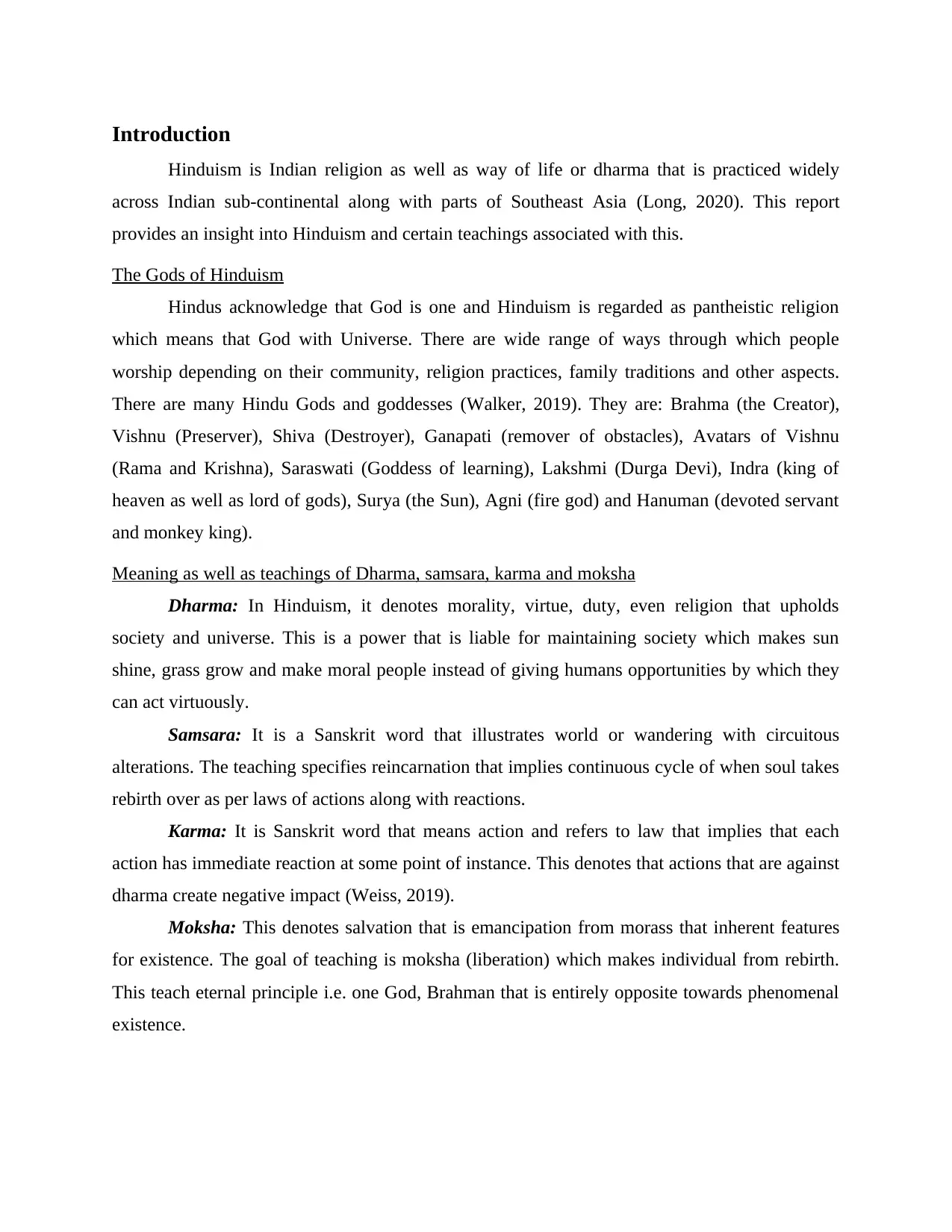Hinduism Report: Gods, Teachings of Dharma, Samsara, Karma, Moksha
VerifiedAdded on 2023/01/11
|5
|534
|28
Report
AI Summary
This report provides an overview of Hinduism, including its key concepts and practices. It begins by introducing Hinduism as a religion and way of life, followed by a discussion of the various Hindu Gods and Goddesses, such as Brahma, Vishnu, Shiva, and others. The report then explores the core teachings of Hinduism, focusing on Dharma (morality), Samsara (reincarnation), Karma (actions and consequences), and Moksha (liberation). The report emphasizes the importance of these teachings in shaping the Hindu worldview and the ultimate goal of achieving liberation from the cycle of rebirth. Finally, the report concludes by highlighting the significance of Hinduism's teachings and practices in fostering spiritual growth and a deeper understanding of the world. The report is a valuable resource for students seeking to understand Hinduism and its core tenets.
1 out of 5









![[object Object]](/_next/static/media/star-bottom.7253800d.svg)